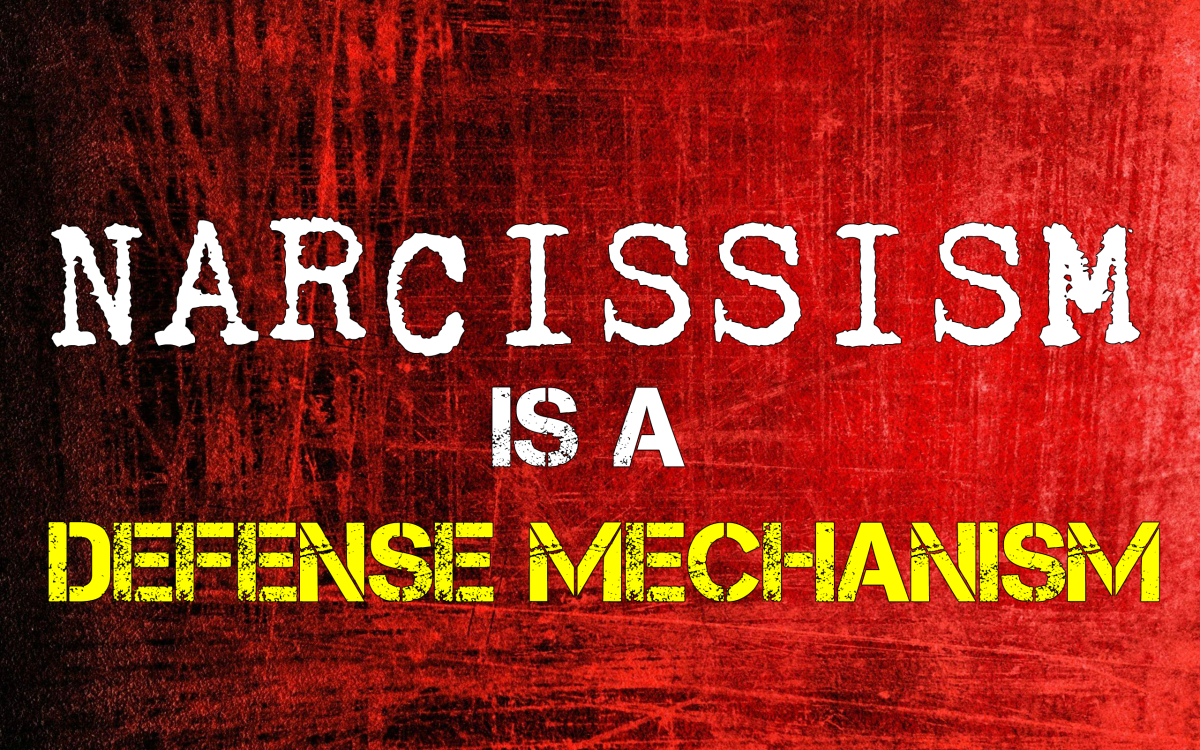Is My Partner A Narcissist?

Narcissistic Personality Disorder
“I believe my partner is a narcissist” — I hear this sentence much more often today than a few years ago. Sure, on the one hand, society has become more selfish. On the other hand, the willingness to help is as high as never before and more and more people are volunteers.
Do we use the term narcissism perhaps premature and inflationary, because it has become a fashion concept? Or do we want to protect ourselves by embarking on the role of victim and assigning the partner, as narcissists, the role of the perpetrator?
An answer can be given only in individual cases. What is clear, however, is that the boundaries between healthy and pathological narcissism are fluid, making this phenomenon so difficult to grasp.
Actually, one should speak anyway of narcissistic proportions or — if strongly developed— of a narcissistic (personality) disorder, because the potential for narcissism carries each of us in oneself. It depends on the expression.
What Is Narcissism?
Narcissism generally refers to exaggerated self-love, which goes hand in hand with a strong self-idealisation.
I would argue: The narcissist makes one’s own ego a fetish. There is thus basically a difference to a — healthy — self-love.
A narcissistic personality disorder (only diagnosable by experts!) has its base on common characterisation.
- When there is a profound pattern of grandiosity (real or fantasy),
- a strong need for admiration and a pronounced empathic deficit,
the onset of the disorder being in early adulthood and affecting multiple areas of life (for instance, not just partnerships).
From this general characterisation, various features differentiate that typically makeup narcissists.

6 Typical Characteristics Of Narcissists
1. No Empathy
It’s difficult for people with a narcissistic disorder to empathise with others. That’s not always easily recognisable because to achieve something for their own benefit; narcissists can look downright clairvoyant.
The opposite is impressed by the accuracy of the assessments, suspects empathy, but actually — not necessarily consciously or deliberately — manipulated. That a narcissist actually has disorders in empathy sensation seems to confirm measurements of the cerebral cortex.
The regions that are responsible for compassion usually remain underdeveloped.
2. Low Self-Esteem
In the definition of narcissism, it became clear that narcissists have experienced a loss of closeness and affection in early childhood development — for example, through a narcissistic parent. As a result, low self-esteem requires upgrades through constant recognition and affirmation from others.
3. Narcissists Don’t Respect Borders
“This far and no further,” narcissists don’t like to hear that. While other people might even see structure as helpful, the narcissist feels devalued. His low self-esteem anyway is now hurt, and he responds with a counterattack. Rules apply to others, not to him. Borders are, in his eyes, necessary — but only to protect himself.
4. To Narcissists The World Is Black And White
Whether colleagues or friends, people are either super or completely stupid. There is nothing in between. Narcissists find it difficult to forgive because lack of empathy means they can’t really comprehend the reasons for wrongdoing and failure. They see the insult and respond as they see fit: no second chance!
5. Continuous Need For Attention
Much consideration, much recognition, much praise, much admiration: narcissists need attention as fuel. Because they have little self-confidence of their own, they always have to fill up their tank. That is what makes relationships with them so exhausting: they tap the energy of their environment and leave it exhausted and depleted.
6. Dominance Strivings
Always the first to always the best would be too exhausting for most people. For what purpose? But another aspect distinguishes narcissists from others: they do not ask for help or support. They do not want to integrate other opinions into their own decisions.

Why Do Narcissists Convince Us So Easily?
Studieshave shown very clearly that at the first meeting, narcissistic group members were experienced by all others as particularly open, competent, conscientious, outgoing or entertaining.
Praising their eloquence — because they are usually articulate, aren’t afraid to approach others and to inform themselves — as well as their entertainment value and their — supposedly — self-assured appearance.
In the initial phase, narcissists are the pure opposite of a self-loving egomaniac. On the contrary, they seem honest and sincere; they attract very imaginatively and creatively and leave you with the impression: Wow!
The Difficult Sides Of Narcissism
In partnerships, narcissists are far more likely to be affected by their disinterestedness and external relations. Because in sexuality, the narcissist needs variety and confirmation.
He often prefers varieties in which his own experience is in the foreground and not so much the mutual. As parents, they want to control their children; they care less about protection than submission.
Narcissistic parents are often angry with their children, so they believe they are doing everything wrong. Narcissistic disorders are so often passed on to the next generation.
Relationship partners are exhausted and drained. If they are no longer able to give recognition, they will be exchanged or severely cut down and devalued. Anyone who comes from a relationship with a narcissist often needs outside professional help and support to avoid another destructive emotional dependency in the next partnership.

That’s How You End A Relationship With A Narcissist
Frequently not even friends realise that this obviously eloquent and charming person could be a narcissist. On the contrary, they often accuse the person concerned with exaggerating or imagining things. To rely on your own judgment, to trust your own voices is often not possible in this situation.
Mostly it takes a painful occasion such as an external relationship or infidelity, so that the partners of narcissists grasp, in which dependency they are. Often that is not enough, at least not immediately.
The partners of narcissists also suffer from low self-esteem in many cases. They, therefore, seek the mistake with them. Had they done this or left that, then their partner would have remained with them and would not have sought confirmation outside of the relationship.
It is a tedious process, unfortunately, to break away from such thoughts and liberate them. Anger and resentment on the narcissistic partner is often the first step in creating distance.
But because the partners of narcissists are physically and mentally weak and exhausted, they usually remain in the phase of crisis and suffer from depression for a very long time. Without support, it is then hardly possible to actually free themselves and heal the injuries.
If you find your partner to be a narcissist, and you want to end your toxic relationship, I recommend the following:
- Get emotional (and possibly professional) support from third parties
- Be consistent during and after a breakup (a narrow fissure already hands narcissists the opportunity to get their foot in the door again)
- Strengthen your self-worth, credit self-care
Expect massive resistance against the separation from your partner (sometimes up to threats or stalking — in this case, you should definitely get help and support)
Resources
- Narcissists may start out popular, but people see through them in the long run
In social settings, narcissists start out strong, but it’s people with high emotional intelligence who win the popularity race. - Narcissistic Personality Disorder | Psychology Today
The hallmarks of narcissistic personality disorder (NPD) are grandiosity, a lack of empathy for other people, and a need for admiration. People with this condition are frequently described as arrogant, self-centered, manipulative, and demanding. They - Pictures by John Loannidis | Pixabay
I love nature and landscape photography!
This content is accurate and true to the best of the author’s knowledge and does not substitute for diagnosis, prognosis, treatment, prescription, and/or dietary advice from a licensed health professional. Drugs, supplements, and natural remedies may have dangerous side effects. If pregnant or nursing, consult with a qualified provider on an individual basis. Seek immediate help if you are experiencing a medical emergency.
© 2019 Danyel








